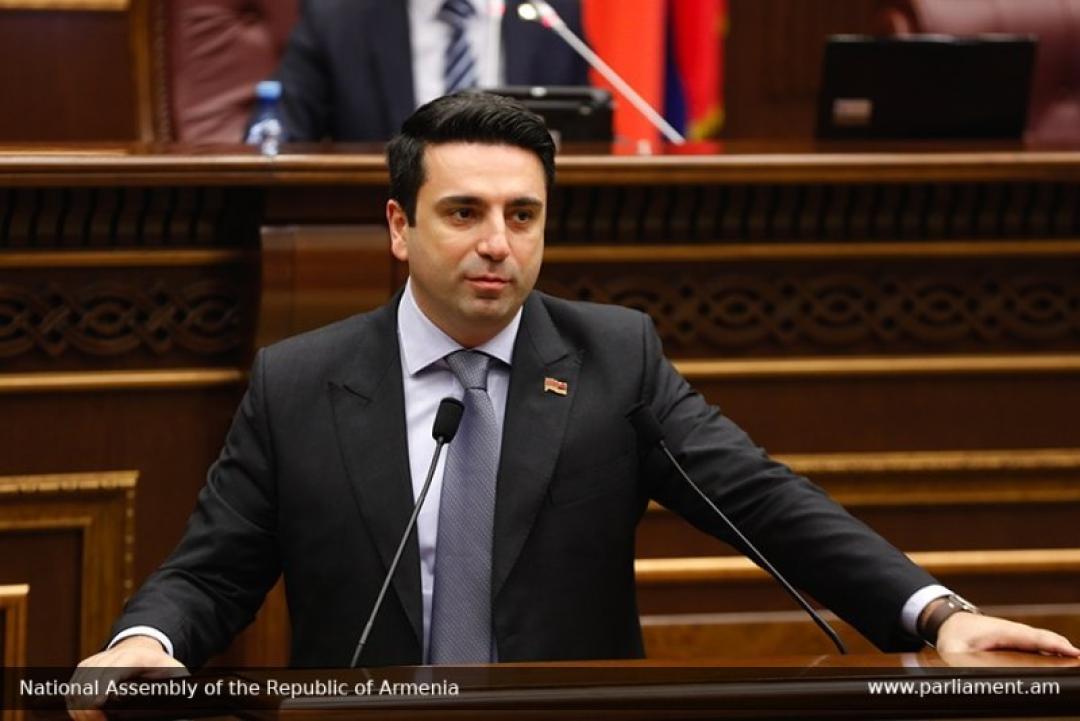
Alen Simonyan Addresses Armenia’s Democracy, Security, and CSTO’s Inaction

On March 25, Armenian National Assembly Speaker Alen Simonyan addressed various issues during a conversation with journalists in Parliament, including plans to establish a media center for interviews, the status of Armenia-Azerbaijan peace negotiations, and Armenia’s foreign policy stance.
Simonyan proposed converting an unused room in the National Assembly into a media center for exclusive interviews, mentioning financial constraints but emphasizing cost-saving measures, such as reducing the parliamentary vehicle fleet to 30 cars.
Regarding the Armenia-Azerbaijan peace process, Simonyan stated that Armenia’s proposal to sign an agreement may have surprised Azerbaijan, as Baku may have expected Armenia to reject it—allowing Azerbaijan to present itself favorably to international organizations. He emphasized that Armenia’s goal is to achieve concrete results rather than prolong discussions.
Responding to opposition claims that Armenia is making unilateral concessions, Simonyan dismissed these accusations as baseless, arguing that all provisions in the agreement apply equally to both parties. He challenged critics to provide evidence of such concessions. Addressing accusations of capitulation, he countered by referring to former President Serzh Sargsyan’s resignation in 2018 as a true example of capitulation.
On Azerbaijan’s approach to negotiations, Simonyan acknowledged that Baku has, at times, obstructed the process, while Armenia remains committed to its obligations. He contrasted Armenia’s democratic values and media freedom with Azerbaijan’s restrictions, arguing that Armenia’s alignment with European principles strengthens its security.
Regarding foreign policy, Simonyan rejected claims that Armenia has shifted its position toward Russia, asserting that the country remains focused on protecting its sovereignty. He criticized the Collective Security Treaty Organization (CSTO) for its inaction and questioned its relevance, arguing that the organization should clarify its role and obligations.
Simonyan also addressed concerns about Armenian prisoners of war, stating that their return is being pursued outside the framework of the peace treaty. He noted that Armenia had secured the release of most prisoners taken after the 2020 war, with 23 still remaining, including 12 military-political leaders. He emphasized that efforts to bring them back are ongoing, regardless of the peace treaty’s status.
See Also


Mirzoyan Meets US Deputy Assistant Secretary Joshua Huck

Azerbaijani President Holds Talks with UAE and German Business Delegations on Economic Cooperation

Grigoryan Confirms Armenia’s Readiness to Dissolve OSCE Minsk Group Upon Peace Treaty Signing

Azerbaijani Official Warns of Ecological Risks to Caspian Sea, Similar to Lake Urmia and Aral Sea

